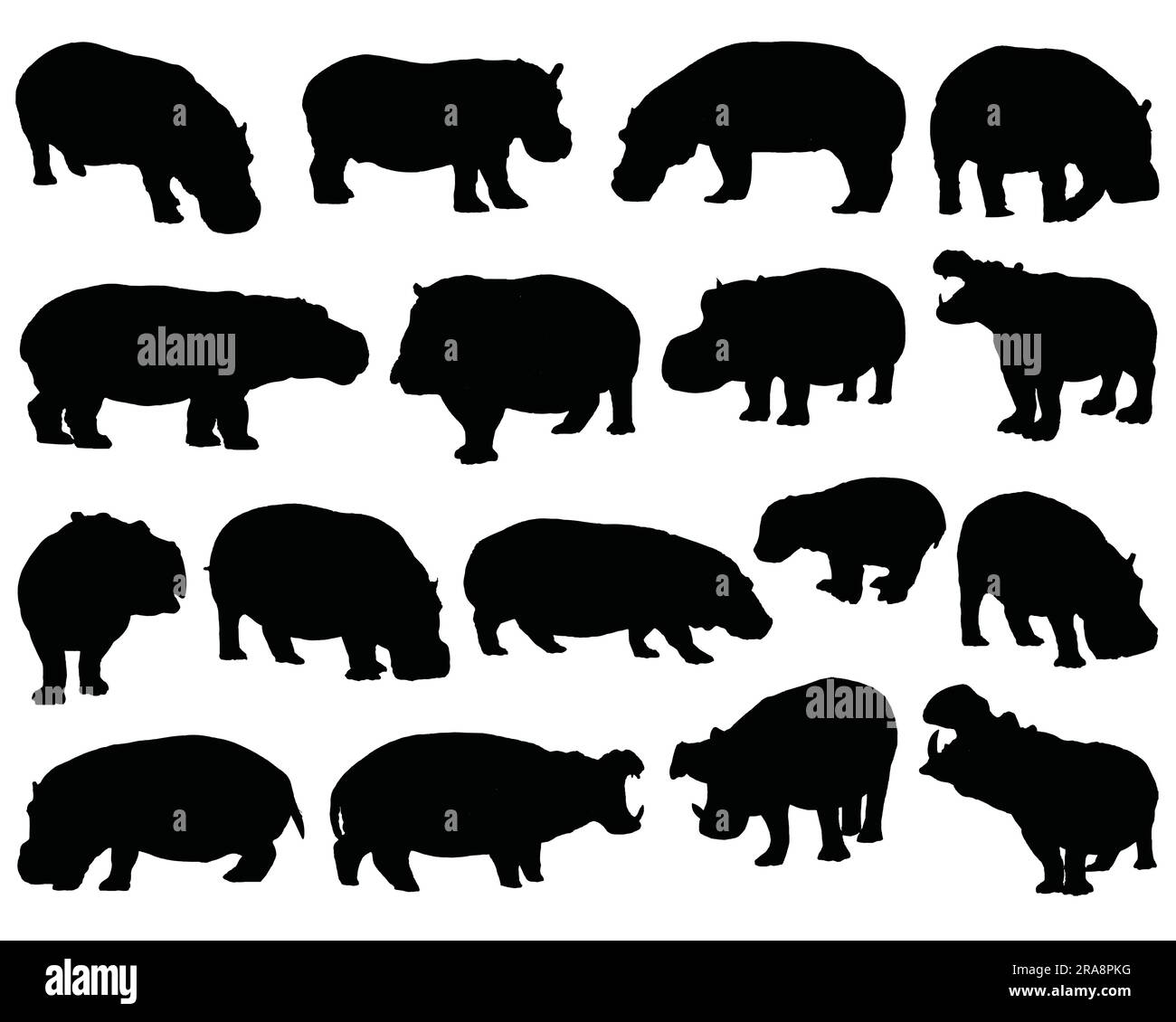The hippopotamus, a colossal resident of Africa's freshwater ecosystems, embodies the duality of nature, blending immense power with an unassuming demeanor. Its name, derived from the Greek words "hippos" (horse) and "potamos" (river), aptly reflects its amphibious lifestyle. Africa's massive mammal, the mighty hippopotamus.

Download Animal, Cat, Mammal. Royalty-Free Stock Illustration Image - Source pixabay.com
Explain our effort doing some analysis, digging information, made The Mighty Hippopotamus: A Colossal Mammal Of Africa we put together this The Mighty Hippopotamus: A Colossal Mammal Of Africa guide to help target audience make the right decision.
FAQs on The Mighty Hippopotamus
The hippopotamus, renowned for its colossal size and semi-aquatic nature, is an iconic African mammal. To delve deeper into the captivating world of these gentle giants, this FAQ section has been assembled to provide enlightening answers to frequently posed questions.

hippopotamus vector illustration Stock Vector Image & Art - Alamy - Source www.alamy.com
Question 1: Are hippos classified as herbivores?
Yes, hippos are predominantly herbivores, primarily consuming short grasses that thrive along riverbanks and in shallow water bodies.
Question 2: Can hippos be found beyond Africa?
Historically, hippos could be found in various regions of Africa and Asia. However, due to habitat loss and hunting, their range is now confined to sub-Saharan Africa, primarily in the eastern and southern regions.
Question 3: How do hippos spend their days?
Hippos are largely nocturnal, spending the day submerged in water to stay cool and hydrated. They emerge at dusk to graze on land and return to the water before sunrise.
Question 4: Are hippos territorial animals?
Yes, hippos are highly territorial, particularly in water bodies. They establish specific areas as their own and aggressively defend them from intruders, including other hippos.
Question 5: Is the hippopotamus the heaviest land mammal?
No, the title of the heaviest land mammal belongs to the African bush elephant. While hippos are indeed massive, averaging around 3,000 pounds, elephants can weigh up to 13,000 pounds.
Question 6: Why are hippos often seen with birds on their backs?
Hippos often host various bird species, such as oxpeckers. These birds provide a valuable service by pecking away at parasites and insects on the hippo's immense body, creating a mutually beneficial symbiotic relationship.
Understanding these fascinating aspects of hippos not only deepens our appreciation for their unique ecological role but also highlights the importance of protecting their habitats and ensuring the survival of these magnificent creatures.
Transition to the next article section
Tips
Discover and explore numerous fascinating tips and insights surrounding the colossal The Mighty Hippopotamus: A Colossal Mammal Of Africa. The realm of hippo knowledge awaits your exploration.
Tip 1: Uncover the hippo's unique physiology:
The hippopotamus possesses an exceptional body structure, boasting the largest mouth of any mammal. Its massive jaws house formidable canine teeth that grow continuously throughout its lifetime.
Tip 2: Delve into the hippo's amphibious nature:
Hippos are renowned for their amphibious lifestyle. They spend a significant portion of their day submerged in water, using their efficient webbed feet for propulsion. Their thick skin secretes a natural sunscreen that protects them from prolonged sun exposure.
Tip 3: Witness the hippo's dominance:
Within hippopotamus society, dominance plays a crucial role. Territorial males establish hierarchies and fiercely defend their territory from rival hippos. They communicate through a series of vocalizations, including distinctive grunts and bellows.
Tip 4: Observe the hippo's maternal instincts:
Female hippos exhibit remarkable maternal instincts. They form strong bonds with their calves, nursing them in the water and fiercely protecting them from potential threats. Calves are highly dependent on their mothers for nourishment and guidance.
Tip 5: Understand the hippo's conservation status:
Despite their impressive size, hippopotamus populations are facing significant challenges. Habitat loss, poaching, and human-wildlife conflict pose serious threats to their survival. Conservation efforts are essential to ensure their long-term well-being.

Set of Hippopotamus Silhouette Stock Vector Image & Art - Alamy - Source www.alamy.com
These tips provide a glimpse into the captivating world of the mighty hippopotamus. By delving deeper into their unique characteristics, behavior, and conservation status, we can gain a profound appreciation for these extraordinary creatures.
Embark on a journey of discovery and immerse yourself in the fascinating realm of the hippopotamus. Their majestic presence and remarkable adaptations will leave an unforgettable mark on your understanding of the African wildlife.
The Mighty Hippopotamus: A Colossal Mammal Of Africa
The hippopotamus, a behemoth of the African continent, embodies a breathtaking blend of power, grace, and ecological significance. Understanding its colossal presence necessitates exploring its defining aspects:
- Weighty Stature: Among the largest land mammals, can reach up to 8,000 pounds.
- Herbivorous Giant: Feeds predominantly on grasses, consuming up to 80 pounds per day.
- Semi-Aquatic Dweller: Spends majority of its time in lakes, rivers, and swamps.
- Protective Mother: Females fiercely guard and nurture their young, which weigh around 100 pounds at birth.
- Terrestrial Movement: Despite its semi-aquatic nature, can travel up to 20 miles per day on land.
- Ecological Keystone: Plays a critical role in maintaining water habitats and supporting biodiversity.
These aspects paint a vivid picture of the hippopotamus's multifaceted existence. Its immense weight and herbivorous diet reveal its adaptive strategies for survival in diverse African habitats. The semi-aquatic lifestyle highlights its reliance on water while its terrestrial movements underscore its versatility. The nurturing behavior of mothers and ecological significance further demonstrate the vital role hippopotamuses play in maintaining the delicate balance of their ecosystems.

Colossal » Blog Archive Zhongwen Hu Meditates on Presence and Emotional - Source www.thisiscolossal.com
The Mighty Hippopotamus: A Colossal Mammal Of Africa
The hippopotamus is a large, semiaquatic mammal native to sub-Saharan Africa. It is one of the largest land mammals, weighing up to 4,000 kilograms (8,800 pounds). Hippopotamuses are herbivores, and they spend most of their time in the water, grazing on plants that grow along the riverbanks. They are also good swimmers, and they can stay submerged for up to five minutes at a time.

Download Zebra, Animal, Wildlife. Royalty-Free Stock Illustration Image - Source pixabay.com
Hippopotamuses are territorial animals, and they will defend their territory from other hippos. They are also very aggressive, and they have been known to attack humans. Hippopotamuses are a keystone species, and they play an important role in the African ecosystem. They help to create and maintain wetlands, and they provide food for other animals. Hippopotamuses are also a popular tourist attraction, and they can be found in many zoos and wildlife parks around the world.
Key Insights:
- Hippopotamuses are large, semiaquatic mammals that are native to sub-Saharan Africa.
- Hippopotamuses are herbivores, and they spend most of their time in the water.
- Hippopotamuses are territorial animals, and they will defend their territory from other hippos.
- Hippopotamuses are a keystone species, and they play an important role in the African ecosystem.
- Hippopotamuses are also a popular tourist attraction.



